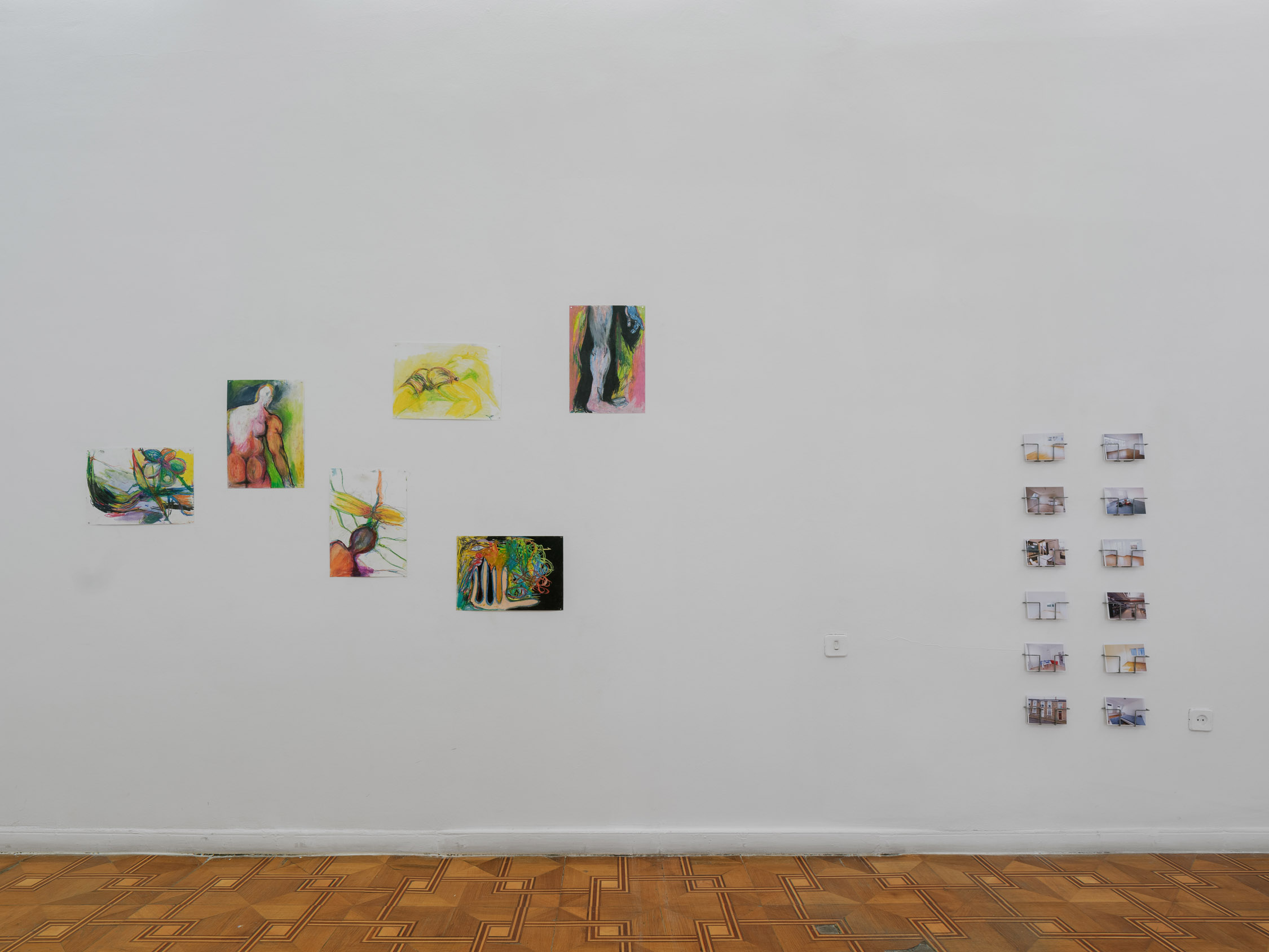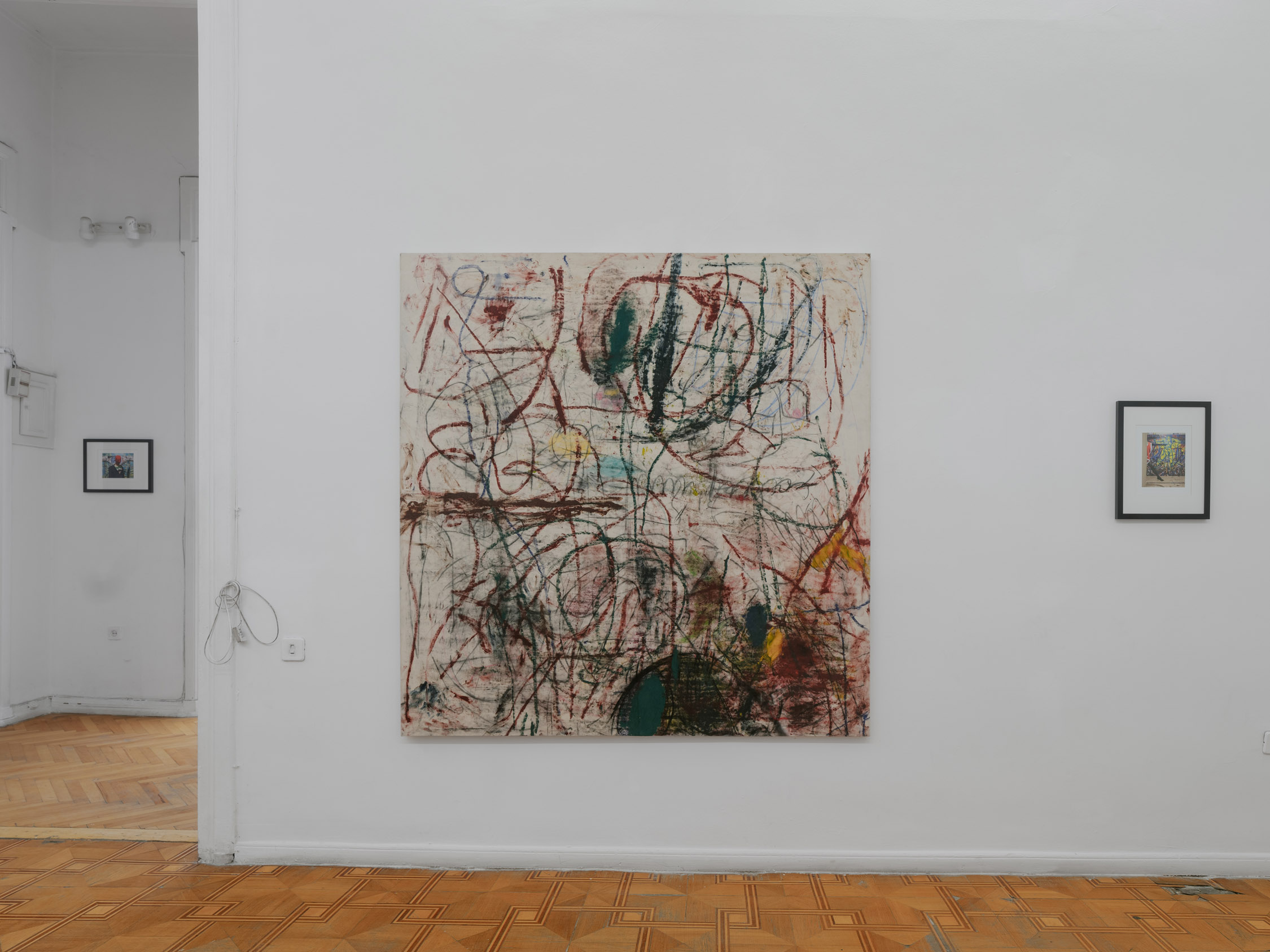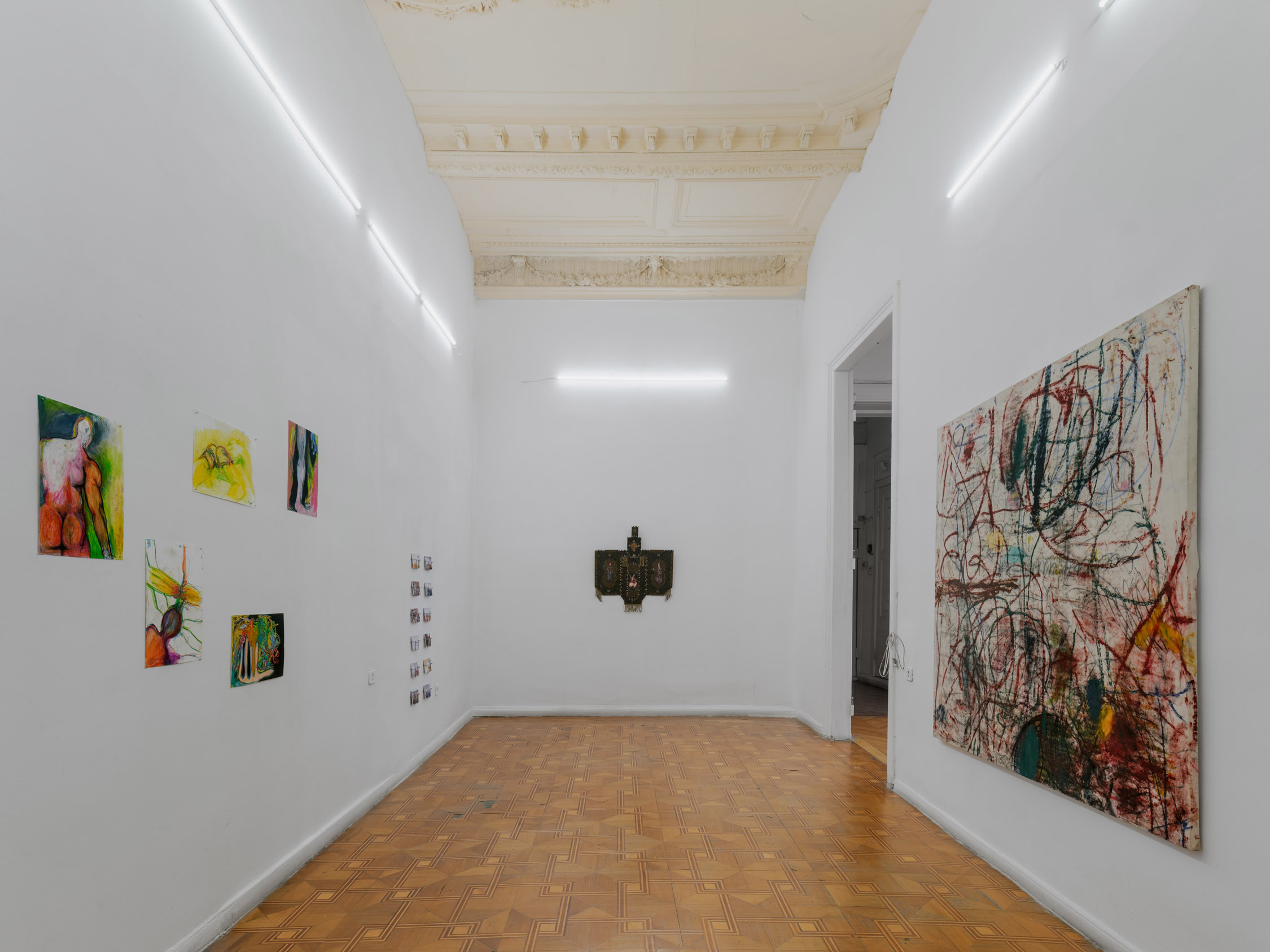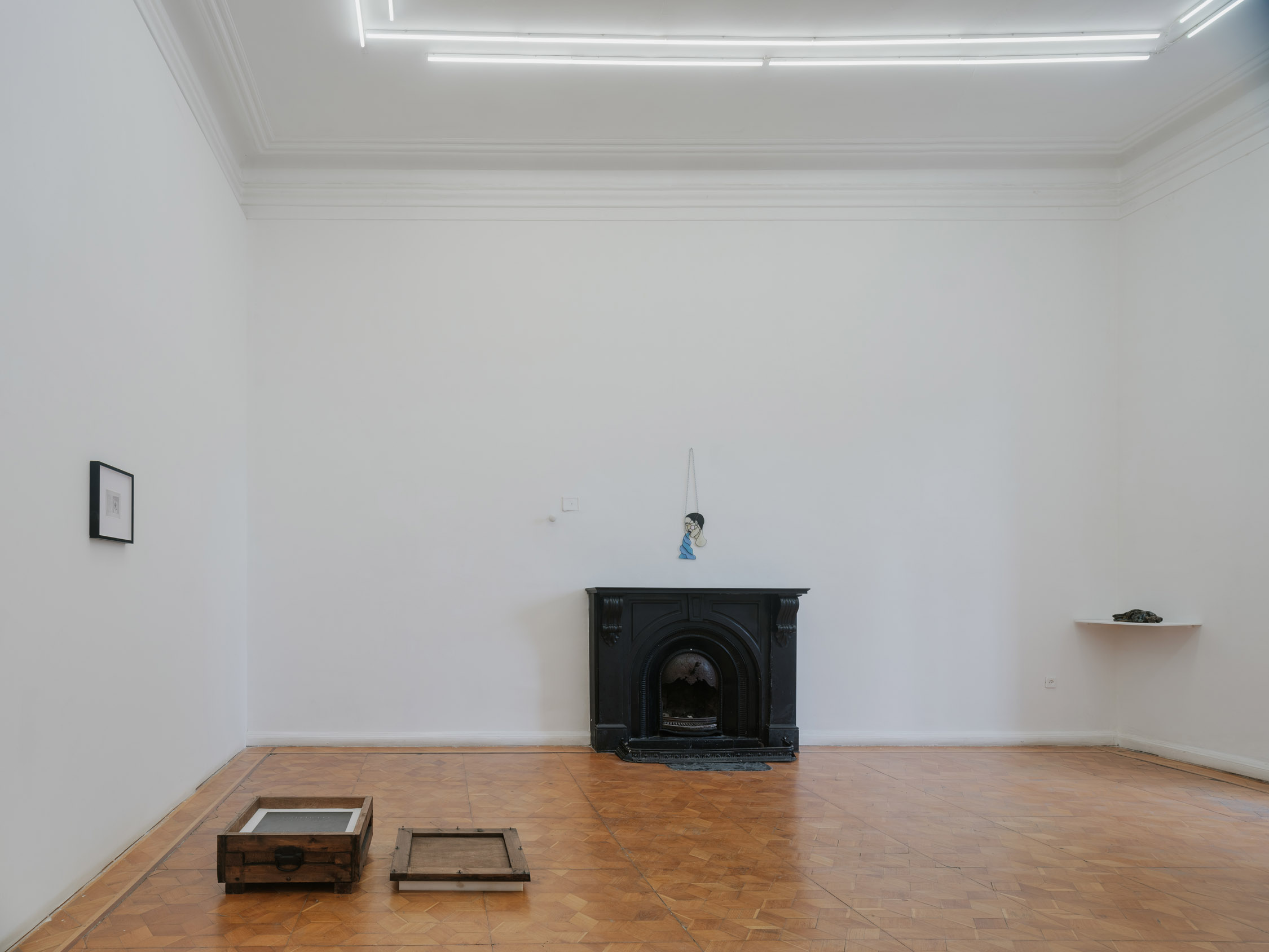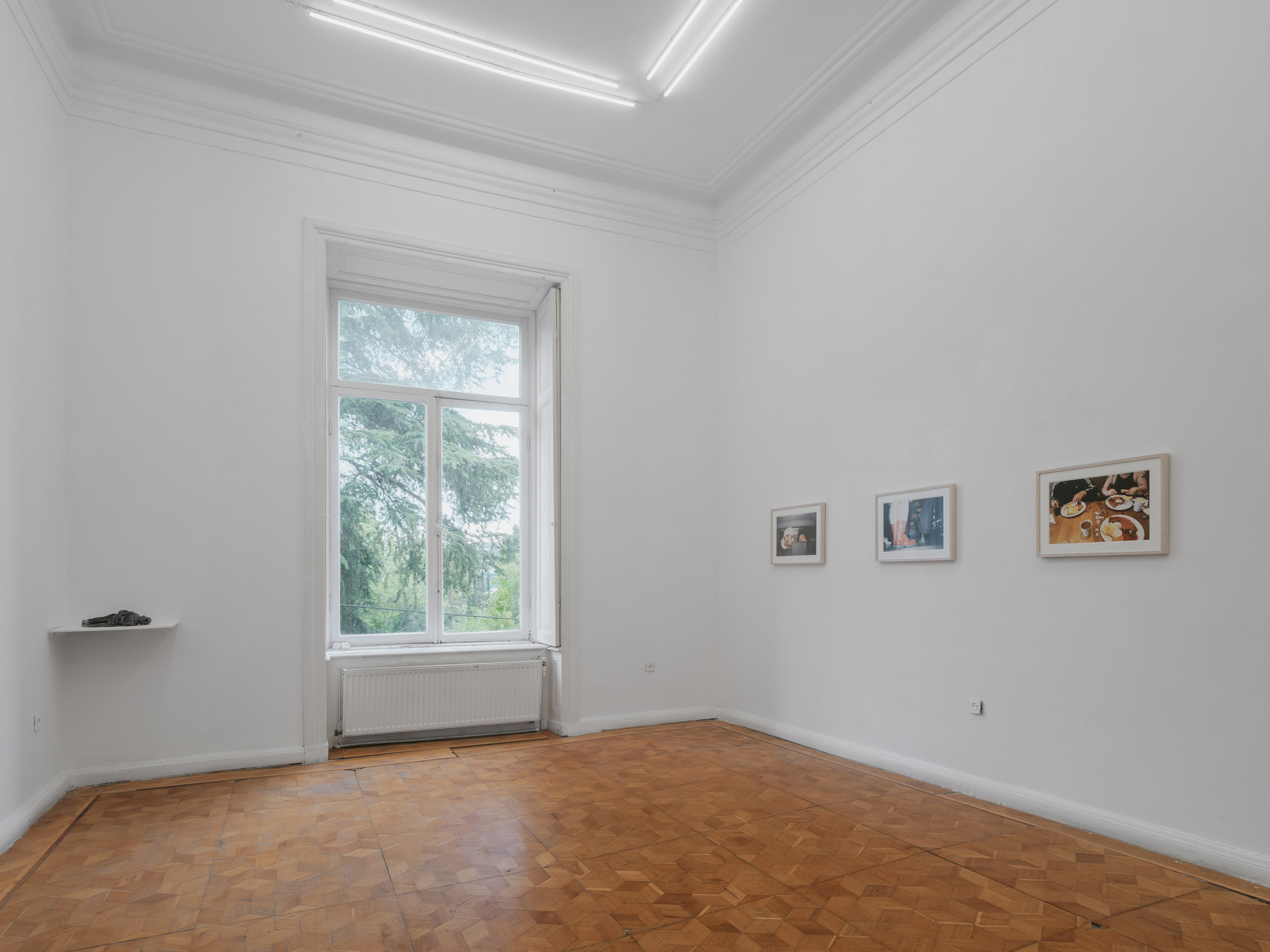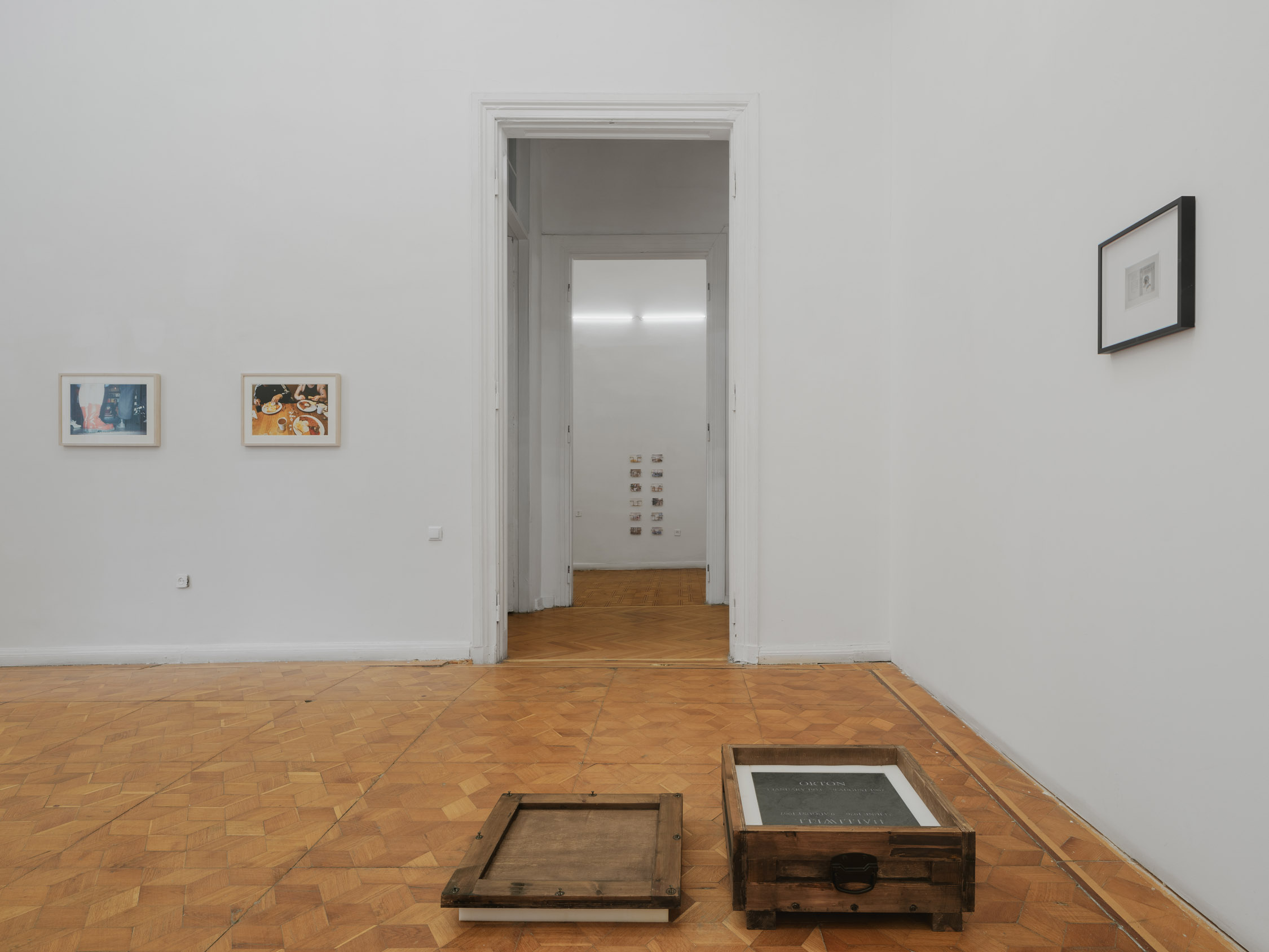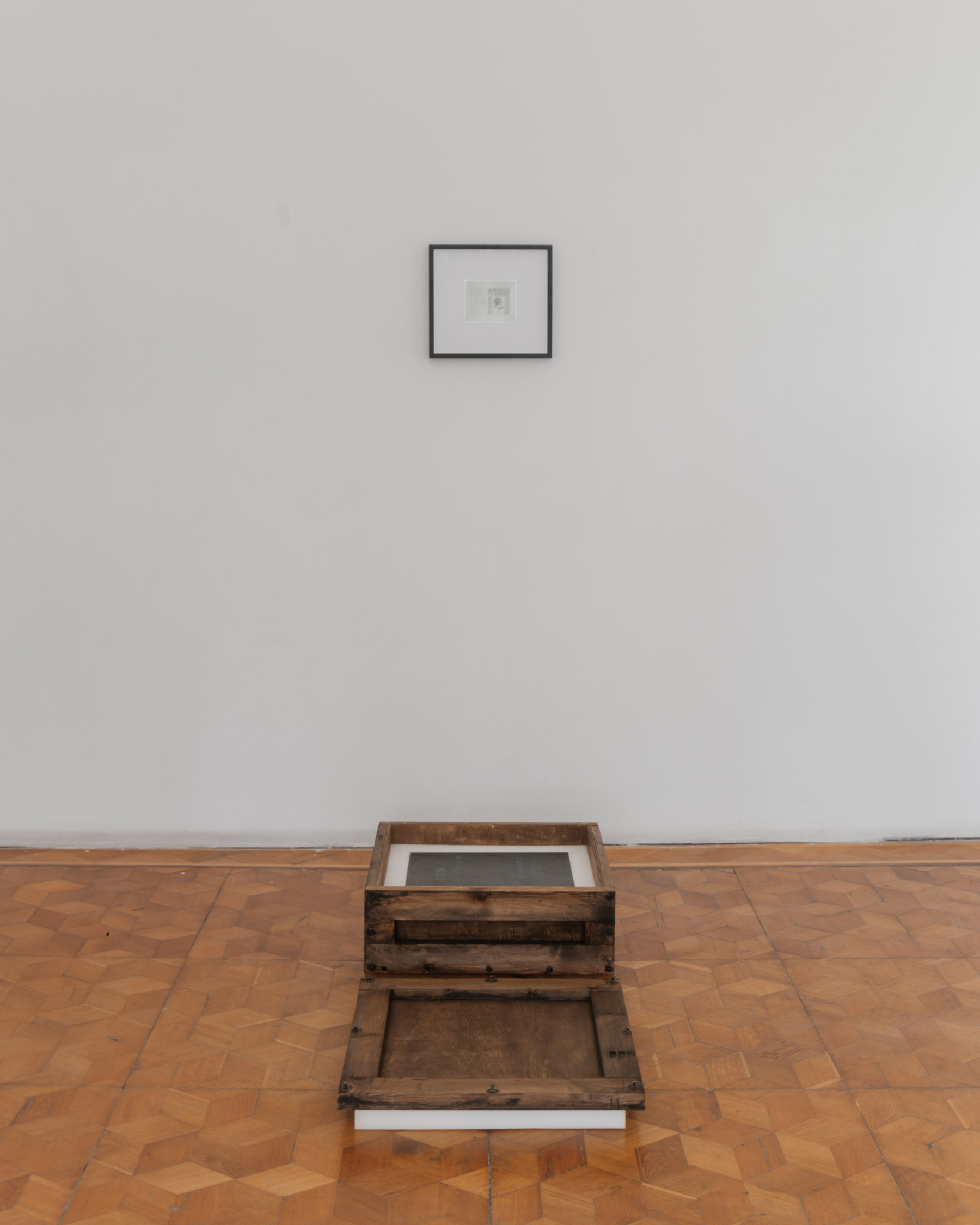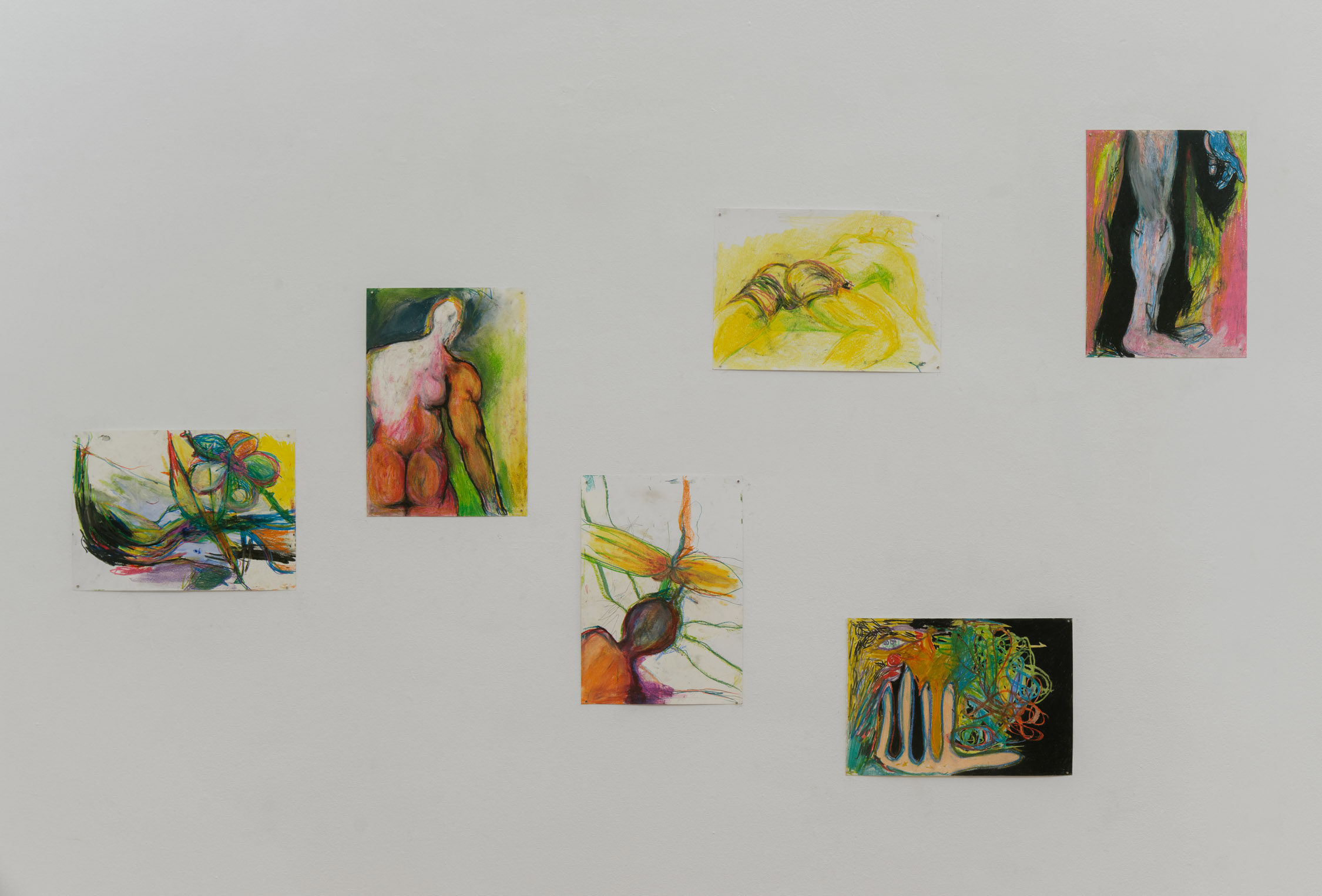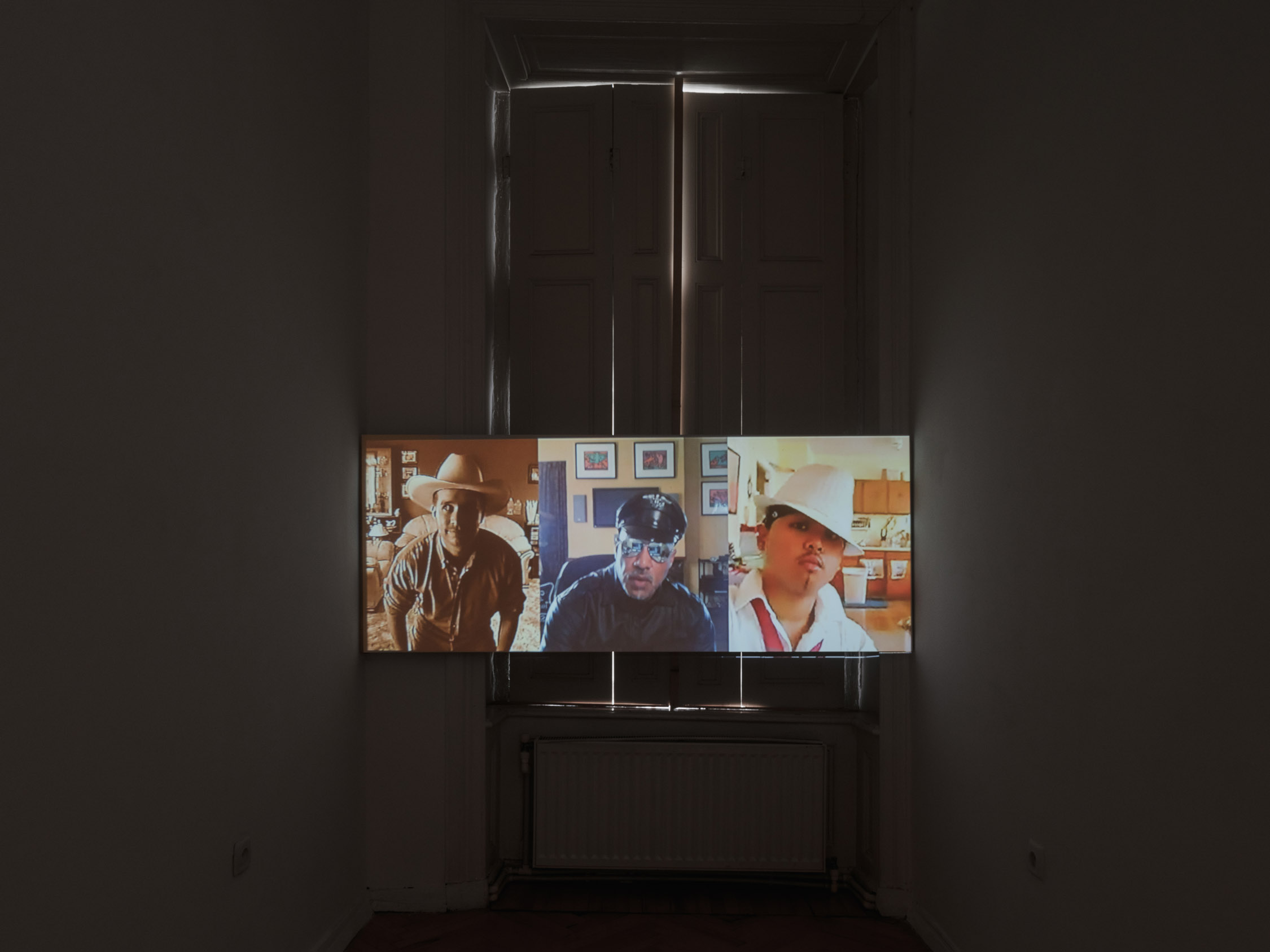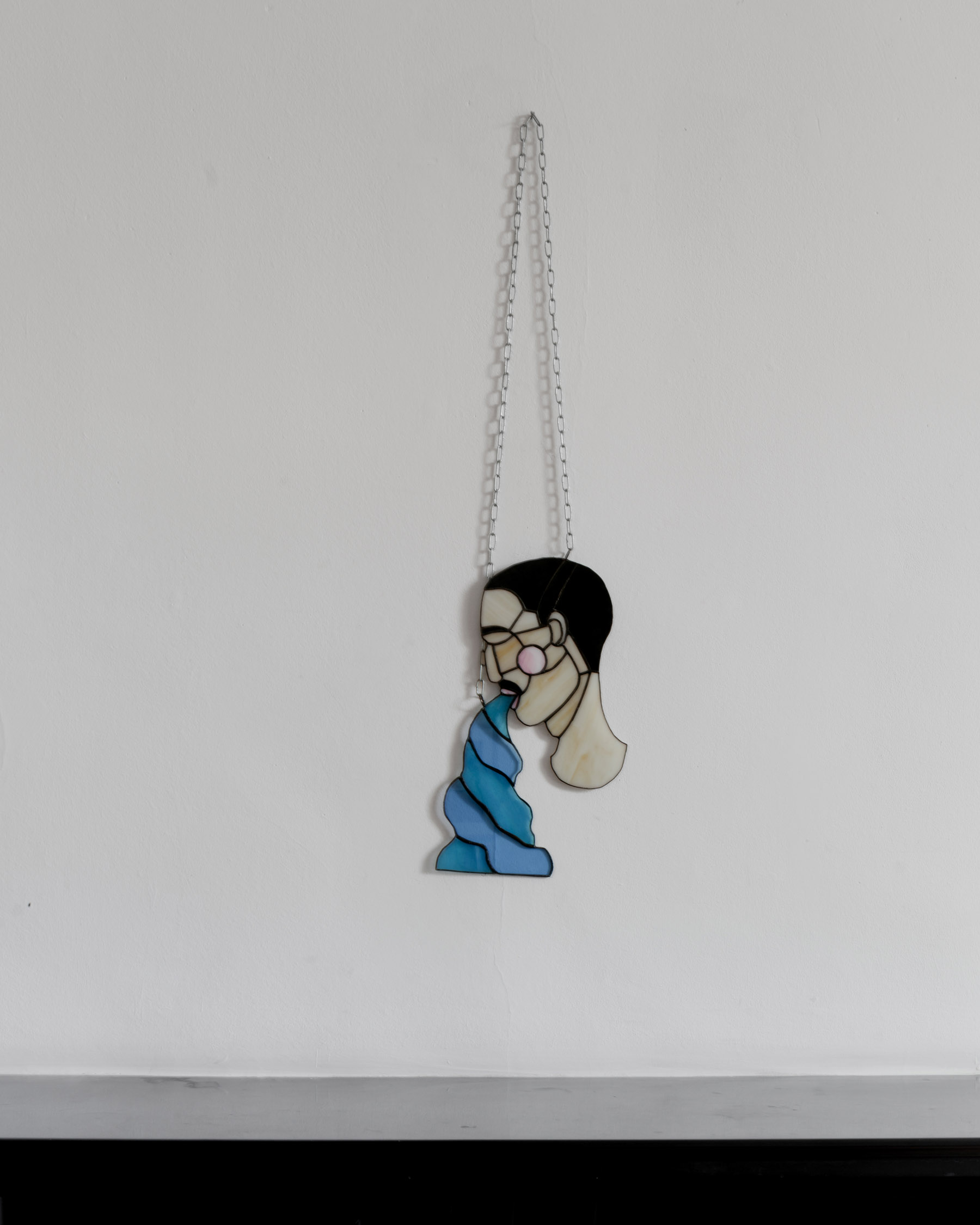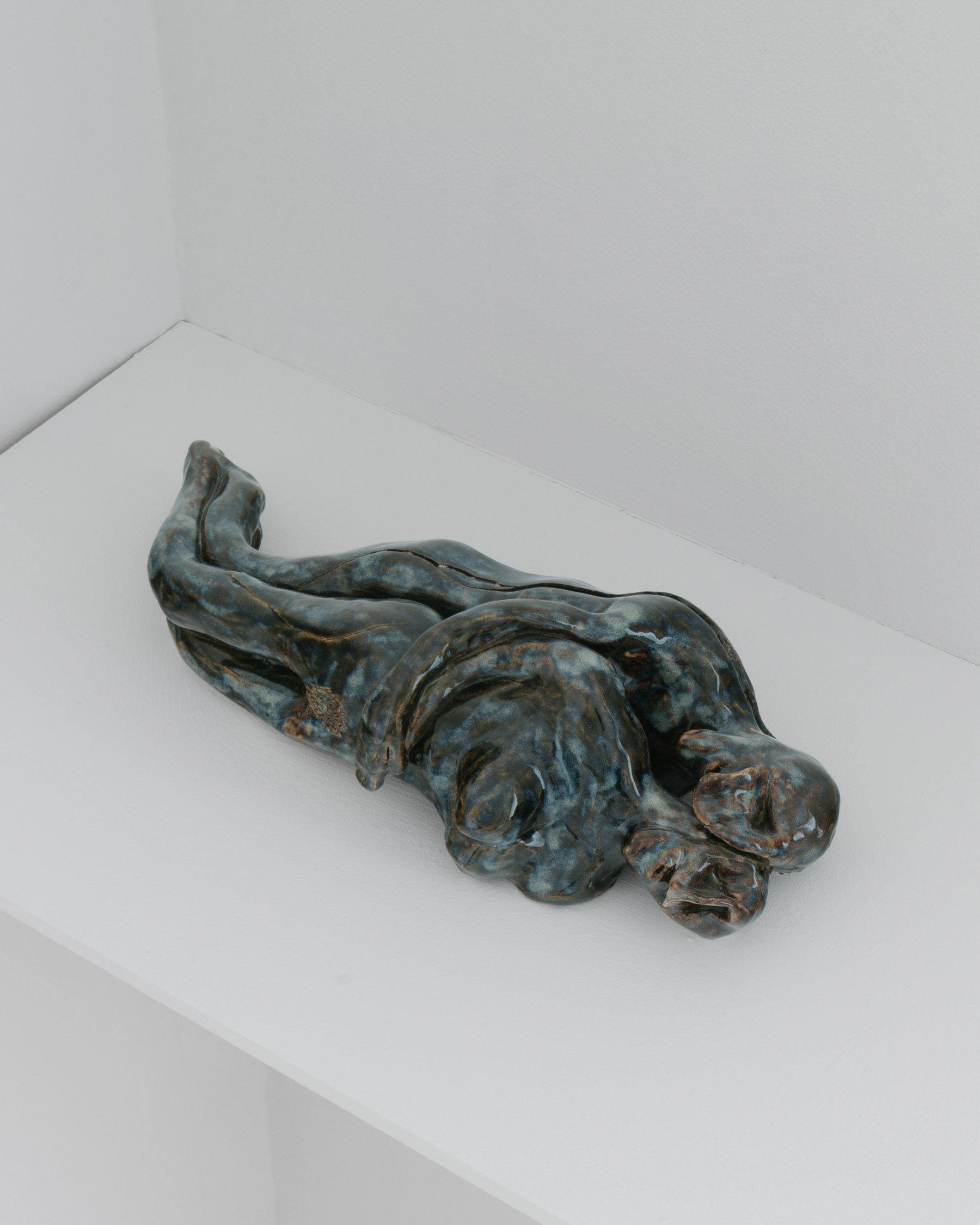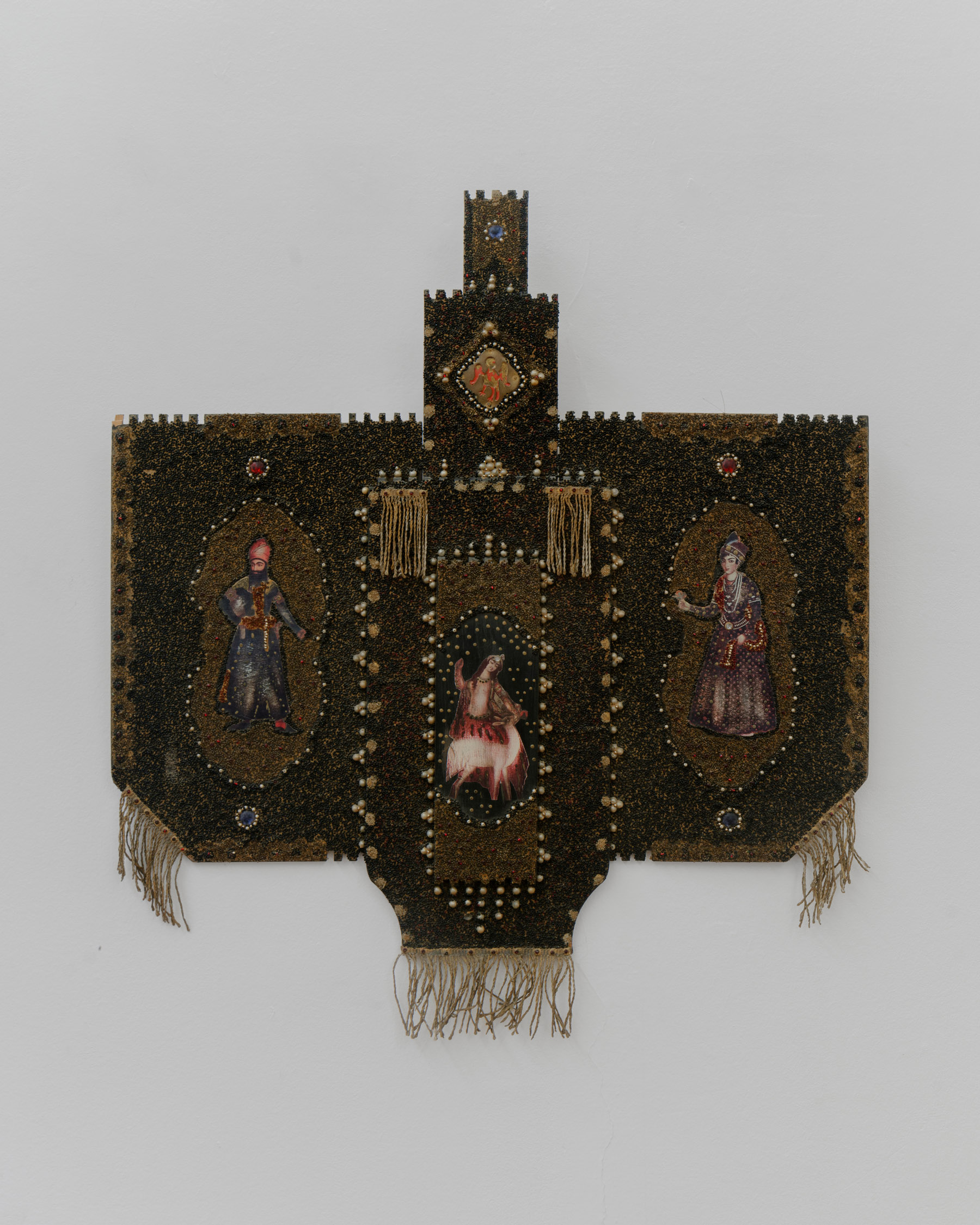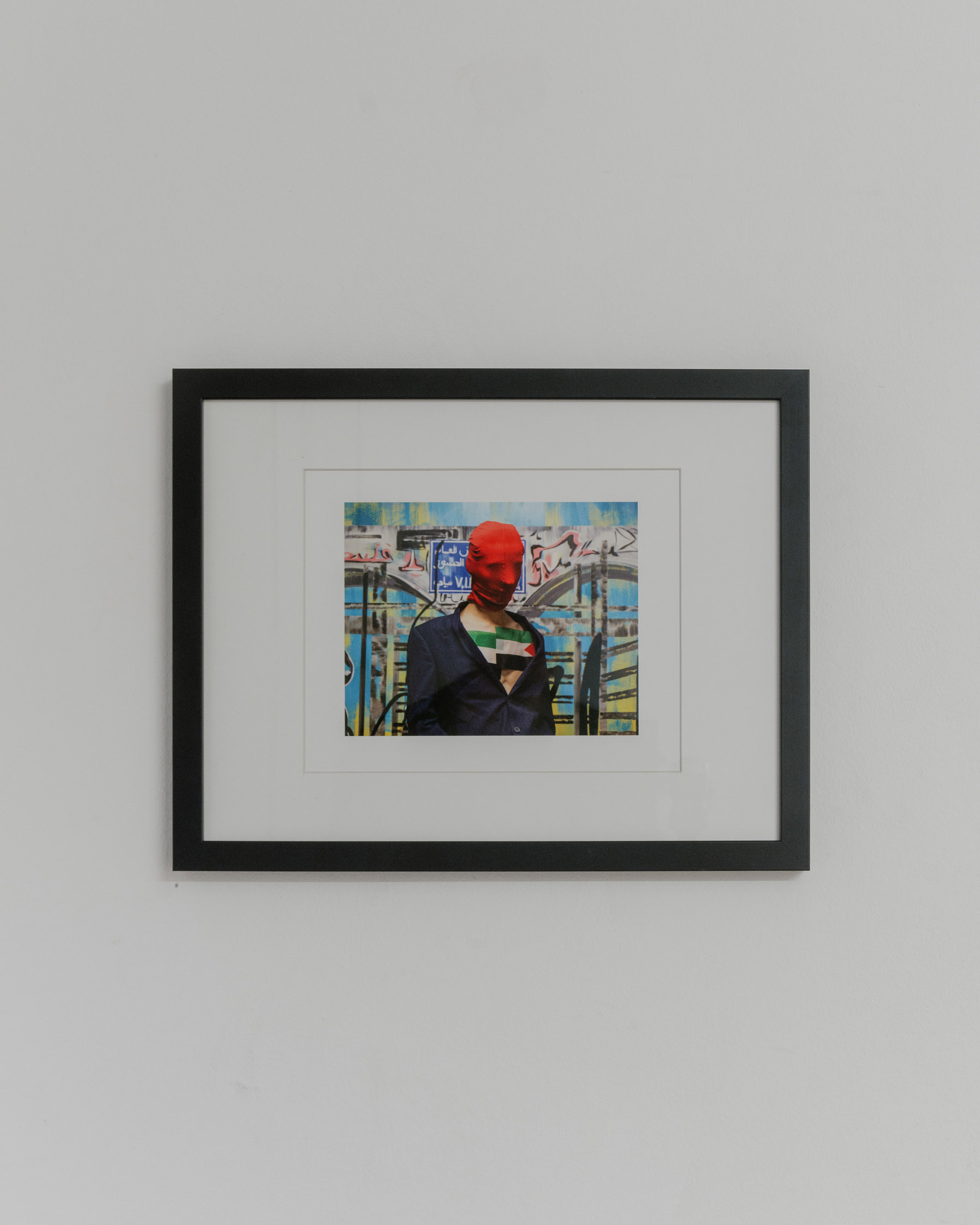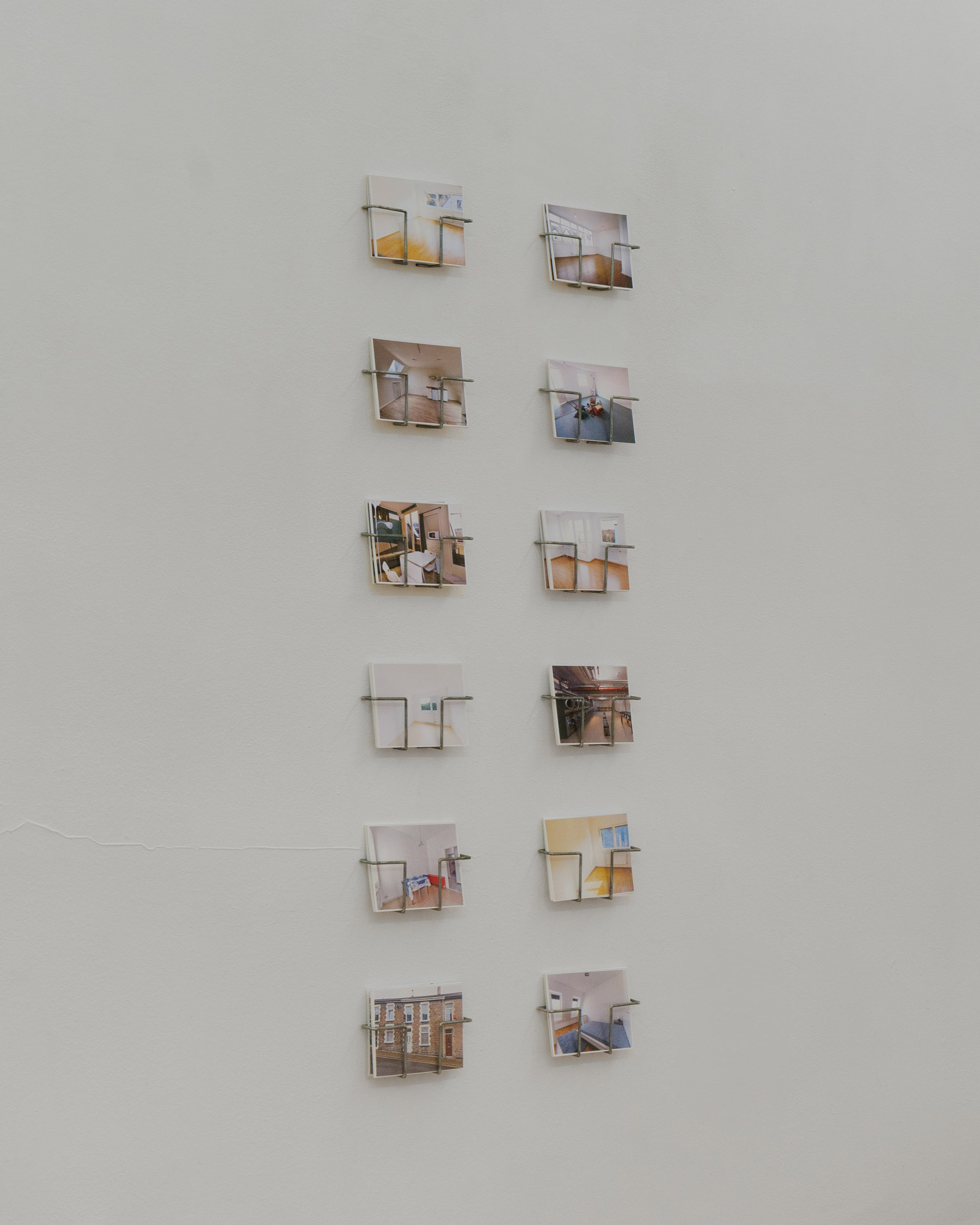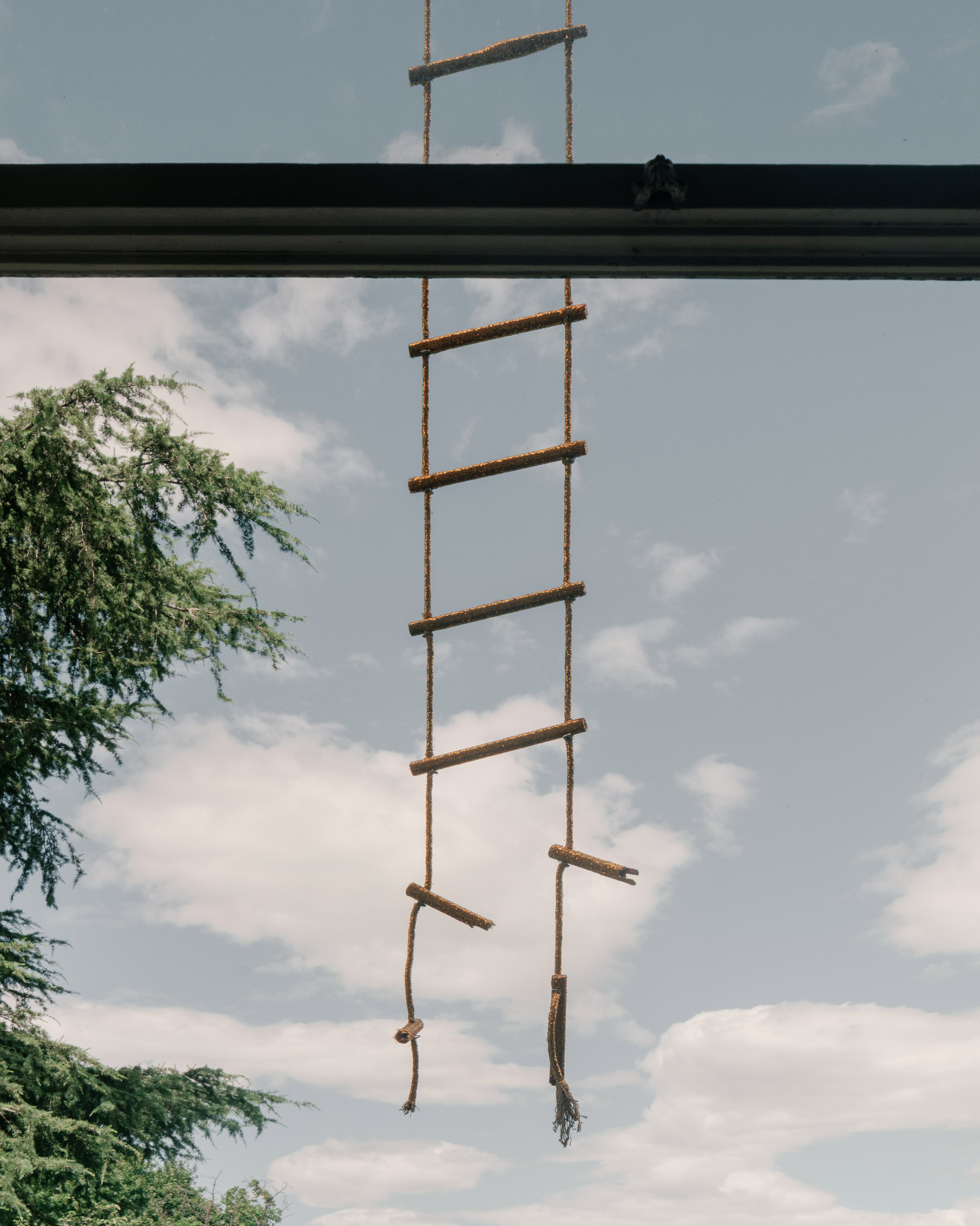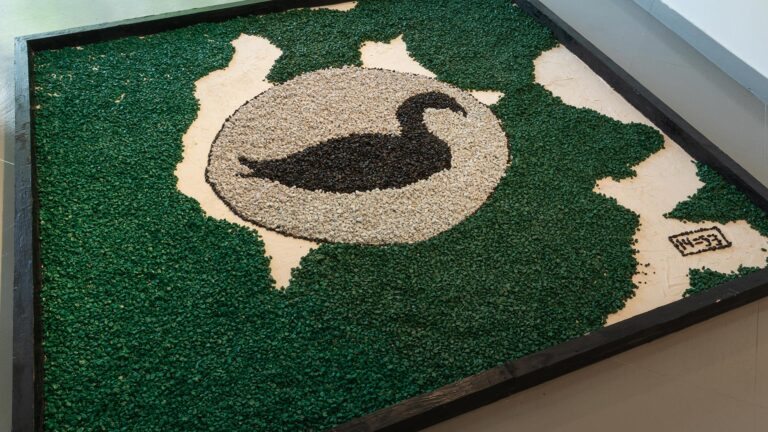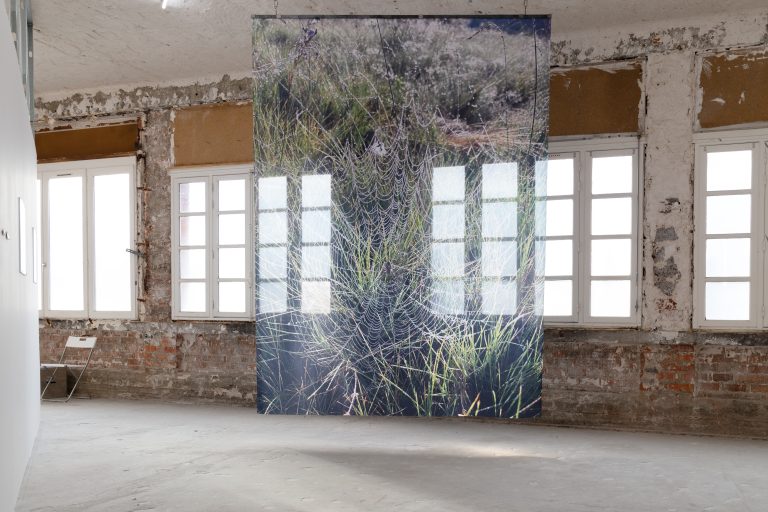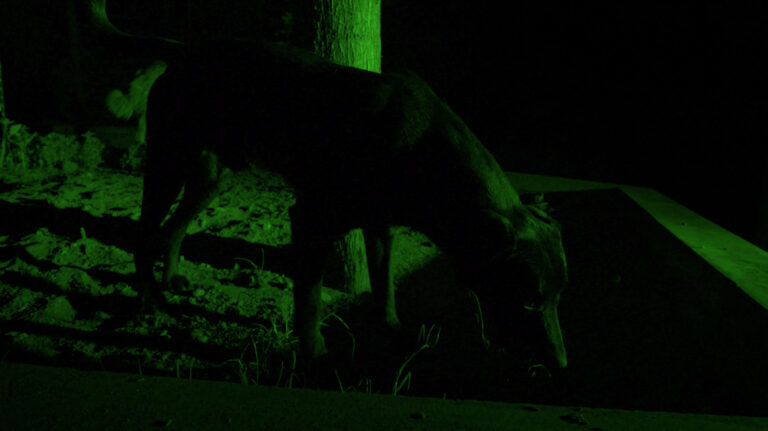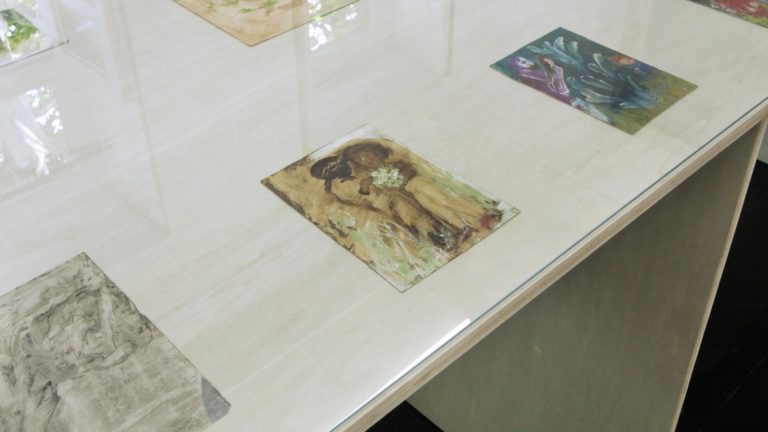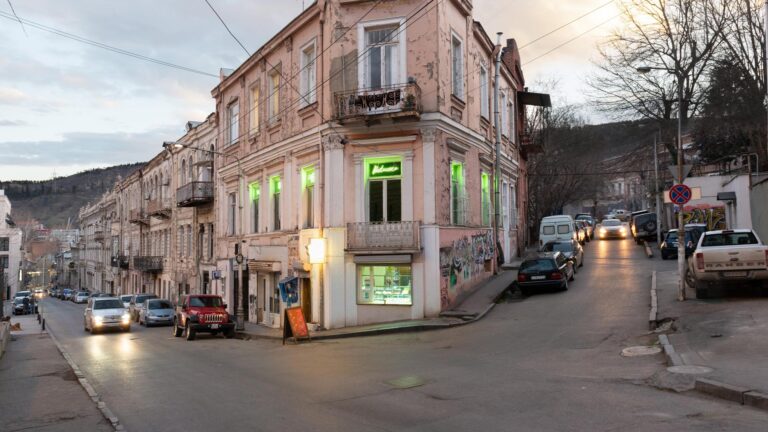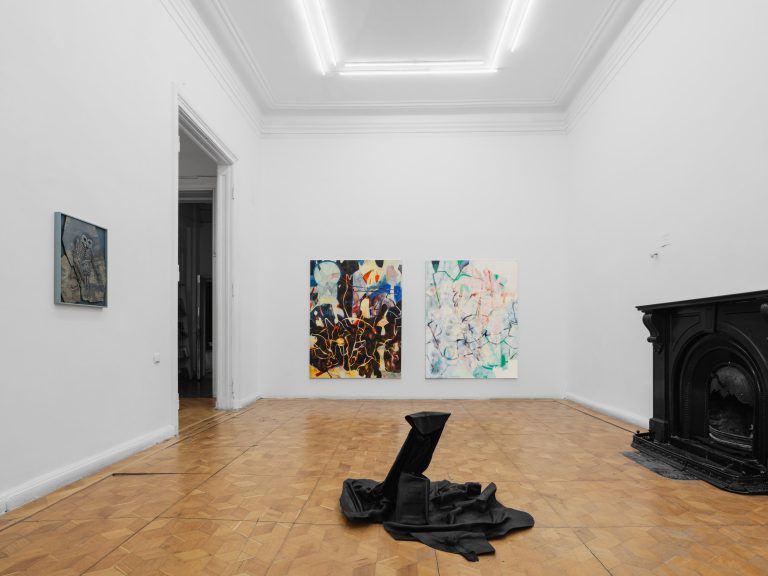Gallery Artbeat presents a group show, ‘Color of Pomegranates’, featuring local and international artists. The participating artists include David Apakidze, Alex Margo Arden, Andro Dadiani, Giorgi Kartozia, Marika Kochiashvili, Rene Matic, Giorgi Miminoshvili, Sergei Parajanov, Hannah Quinlan & Rosie Hastings, Gaby Sahhar, and Beso Uznadze.
The thematic resonance of the existing exhibition reflects significant events that have unfolded in Georgia in recent times, profoundly affecting the everyday lives of the LGBTQ+ community, both in public and private spheres. Today, these issues are especially relevant, as homophobic and restrictive constitutional amendments to LGBTQ+ rights have been initiated, which stirs up polarization, divides society and increases the danger of conflict between different groups. It is not accidental that the main addressee of the law introduced in the given context became the artistic space, which is thought to be the main agent of propaganda.
The exhibition’s title carries symbolic meaning, reminiscent of the politics of gender identities entrenched in local social spaces for decades. It echoes the cinematic masterpiece of Sergo Parajanov, whose works faced censorship by Soviet authorities, leading to his arrest on charges of homosexuality. Similar repressive practices persist in today’s reality, manifesting as physical and social violence inflicted by both the state and society.
The events of May 17, 2013, marked by surreal and absurd scenes, represent one of the brutal manifestations of violence, wherein aggressive clergy or their followers attempted to breach police cordons and physically assault the LGBTQ+ community. With each passing year, this scenario intensifies further. It is within this context that the exhibition seeks to echo and shed light on the challenges faced by LGBTQ+ individuals within the discourse of art.
Note:
On June 20, 2024, at the joint session of four committees in Parliament, the draft law limiting LGBTQ+ rights, ‘On Family Values and Protection of Minors’, was adopted in the first reading. All four committees supported the anti-LGBTQ+ law. These committees are: The Committee on Protection of Human Rights, the Committee on Protection of Education, and the Committee on Protection of the Sectoral Economy.
David Apakidze is a visual artist, curator, art historian, and researcher. Co-creator of the Fungus Project, a Caucasia-based queer art platform, and Fungus Gallery. In his Artistic research, he explores contemporary culture as it relates to their identity. He studied Art History at the Tbilisi State Academy of Arts. The course put an emphasis on medieval Orthodox art, which greatly influenced his artistic perspective. Much of his work revolves around queering Georgian Orthodox imagery as he seeks to uncover queer codes within Georgian culture.
Alex Margo Arden is an artist who lives and works in London. She uses theatrical methodologies to interrogate the production, interpretation, restoration, and restaging of histories. Through her conceptual research projects, she often employs remaking and performance to question authenticity, and labour. Recent solo exhibitions include, ‘Attention Restoration’ (2023) at Quench, Margate; ‘Rock Paper Scissors’ (2023) at Royal Academy of Arts, London; ‘Responsibility, Responsibility Responsibility’ (2023) at Art-O-Rama, Marseille; ‘All Clear’ (2022) at Ginny on Frederick, London, THE FARMYARD IS NOT A VIOLENT PLACE…’ (2020) at Cell Project Space, London. Her work has been written about in Frieze, Art Monthly, The Art Newspaper, Flash Art, Another Magazine, and American Vogue. She is currently studying at the Royal Academy Schools and she previously graduated from Goldsmiths where she was awarded the Hamad Butt Memorial Prize.
Andro Dadiani is a Georgian artist and poet. His work is characterized by: homoeroticism. The works are a constant reflection on social issues, of which the examiner and the mediator is himself. He always speaks personally on global issues such as labor rights, homophobia, violence against women, religious fanaticism, occupation, independence, the destroyed intellectual heritage of the Soviet Union, etc. Since Georgia is one of the most homophobic countries, the artist has to present himself with a pseudonym and a mask for staying in the country and social self-preservation. Andro Dadiani is one of the most famous artists in the country, but his family is not even aware of his activities, and this repressed nature makes his works clear and emotional.
Giorgi Kartozia born in 1994 in Tbilisi, Georgia, is a young artist who works in both Tbilisi and Berlin. From 2012 to 2014, he studied at the Faculty of Architecture at the Tbilisi State Art Academy. He moved to Berlin in 2015. It was during this period that painting became the main medium of his creativity, which he connected with processes of self-discovery and cognition.
For the artist, painting as a visual form defined the connection between existential philosophy and psychographic painting. For him, painting is a tool of communication with the subconscious, the main mechanism of which is the sublimation and transformation of sexual energy. ‘Painting fabric’ is created by automatic, unconscious impulses, intuitive flow of color and form. Colored formations lightly mixed with each other represent a psychological and meditative compound. The artist often violates human physiognomy and takes the image to the extreme limit, where confused forms merge with each other. They seem to be on the border of abstraction and objectivity, between chaos and order.
Marika Kochiashvili (b. 1986 Tbilisi, Georgia) based in London, works in a range of media including photography, sculpture and video. Originally from Georgia, her work is informed by religious conservatism and how it has shaped representations of female sexuality in the South Caucasus. Marika is drawn to a visual language that celebrates fluidity. She has been photographing nudes by focusing on the stories that emerge through gesture, posture, choreography and the blurred lines of the gender binary. Marika got interested in sculpture in 2022 and received Arts Council England’s Develop Your Creative Practice grant which allowed her to explore the medium at more depth. Since then, sculpture has become one of the central parts of her practice. The works are hand-built, small to medium scale, androgynous-looking figurines depicting intimate relations and sex scenes.
Marika’s recent exhibitions include: 2024 – Solo exhibition, sculptures – When I grow up I’m gonna kiss you, New Narratives Gallery, Tbilisi, Georgia; 2024 – Dummy Book Award shortlist – Peeping Dyke – Germany; 2024 – Pride Photo Exhibition – Netherlands; 2023 – Self Portrait by the Mirror, National Gallery, Tbilisi, Georgia; 2023- On the Verge of Masculinity and Femininity, Fungus Gallery, Tbilisi, Georgia.
Rene Matić (b. 1997, Peterborough, UK) is a London-based artist and writer whose practice spans across photography, film, and sculpture, converging in a meeting place they describe as ‘rude(ness)’ – an evidencing and honoring of the in-between. Matić draws inspiration from dance and music movements such as Northern soul, Ska, and 2-Tone as a tool to delve into the complex relationship between West Indian and white working-class culture in Britain, whilst privileging queer/ing intimacies, partnerships and pleasure as modes of survive.
Giorgi Miminoshvili (b. 2003, Rustavi) is a student at the Faculty of Visual Arts in the School of Visual Arts and Design at Tbilisi Free University. Giorgi observes the changing urban and social landscapes, working mainly in sculpture, installation, and found objects.
Miminoshvili’s artistic practice focuses on emigration, identity, and geographical issues. The emergence of these themes in his work is directly related to the acute political events taking place locally. Political unrest, conflicts, and socio-economic challenges significantly impact migration processes and identity formation. These problematic issues are addressed in the artist’s latest series, which includes images in the format of postage stamps. The images are taken from online home rental platforms and depict temporary commodified spaces. The series was preceded by an anthropological study of spaces, focusing on two opposite spatial concepts: ‘non-places’ and ‘anthropological places’. In the photographic images, the main emphasis is placed on both spaces with identity and spaces without identity. These commodified spaces, such as rented apartments or dormitories, are directly related to the concept of ‘non-places’. In this context, Miminoshvili’s series connects the political context in Georgia, migration processes, and the concepts of ‘non-places’ and ‘anthropological places’.
Sergei Parajanov (1924-1990) was a film director, screenwriter, and artist, renowned for his numerous film awards. After graduating from the Moscow State Film Institute in 1952, he began working at the Dovzhenko Film Studio in Kyiv.Farajanov achieved international acclaim with his iconic films ‘Shadows of Forgotten Ancestors’ (1965) and ‘The Color of Pomegranates’ (1969). These films established him as a pioneer of ‘poetic cinematography’.
Although not a dissident, Parajanov openly criticized the government’s cultural policies, campaigning against censorship and judicial reprisals against the Ukrainian intelligentsia. In 1973, he was convicted of perjury and sentenced to five years in prison. He spent four years incarcerated, and in late 1977, due to the significant efforts of the global creative intelligentsia, he was released. However, he was banned from living in Kyiv. Parajanov was forced to return to his native city of Tbilisi. Unable to work in his field there, he supported himself by selling antiques. In October 1981, while in Moscow, Parajanov defended Yuri Lyubimov’s play, which angered the central authorities. Consequently, a new case was fabricated against him, and in February 1982, he was imprisoned in Tbilisi’s Ortachala prison.
Hannah Quinlan and Rosie Hastings are an artist duo working in film, drawing, installation and performance. Their work examines the behaviors, history, politics and artefacts of LGBTQ+ culture in the western context, exploring how this culture is reflective of broader societal structures. Their collaborative practice uses film as part documentary and research, and part cinematic experience with an expert use of sound, color, and camerawork.
Hannah Quinlan and Rosie Hastings use the traditional medium of fresco painting to depict street scenes showing groups of people portraying various power dynamics, class and social relations and positions of authority. Their collaborative work is linked to their ongoing research and exploration into the relationship between public space, architecture, state infrastructure, gender and sexual identity, asking viewers to question what public space looks like.
Gaby Sahhar is a French-Palestinian artist working between London and Paris; their rejection of binaries is reflected in a multi-disciplinary practice that spans painting, video and installation. It is an ongoing concern of Sahhar to deconstruct representations of queerness within the public sphere, considering the impact of this representation on queer consciousness and communities. Sahhar aims to generate dialogue around migration, value systems, affordability within city cultures. Through speculative storytelling their work illustrates the various ways psychological and physical frameworks fragment Palestinian geopolitical borders and identity.
Gaby Sahhar MAC VAL, Paris, 2023; PAGE (NYC), New York, 2022; Sadie Coles HQ, London, 2022, Whitechapel Gallery, London, 2023. Arab World Institute, 2024 Paris, Forthcoming exhibitions include Spiaggia Libera Gallery, Paris and Magasins Généraux, 2024.
Beso Uznadze’s (b. 1968, Tbilisi) artistic oeuvre started as a portrait photographer. With his photos the artist managed to depict personalities of his sitters, showing both their vulnerability and strength. The viewer was able to sense the invisible connection between him and his models and become part of the dialogue, which occurred during the photo shoot.
In 2016 Uznadze started working for him in a totally new medium. His latest works are abstract, large-scale paintings. These abstractions can be interpreted as a replication of a certain style, but their authenticity guarantees a specific context and a high degree of individualism of the artist. The dynamics and internal organizations of these compositions are made with the connections of monotonous or angular and round shapes using a mechanic movement. Similarly, to his photos Uznadze manages to have an invisible link with his paintings. The artist manages to project his emotional vulnerability to the canvas, which becomes reachable for the viewer when observing his paintings. Being it photography or painting, the artist uses the creative process for all the same purpose, freeing himself from the content and getting lost.
